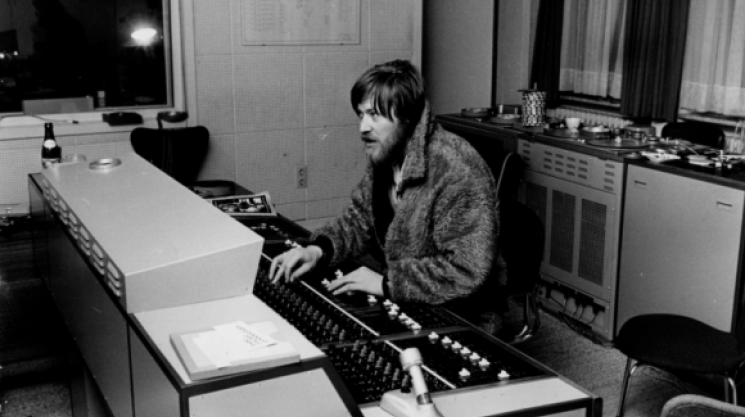
Fri, 07/10/2015 - 15:36 by Natasha Neale
Hidden away silent amongst the cobwebs in the estate of the late Conny Plank, sat an unreleased recording waiting to be discovered. Amalgamated together in one session were the geniuses of Plank—a krautrock producer—and jazz legend Duke Ellington. There had been whisperings of the union between the two circulating since 1970, left unfounded until now. The recorded session encompasses two songs, three takes each, titled: “Alerado” and “Afrique.” The sound within these tracks gives a refreshing pop-jazz fusion that makes you want to bop around whilst holding a martini.
The session is a 29-minute ride of sound that begins with “Alerado,” more of a pop-sounding-swing-number compared to “Afrique.” It’s very up-tempo especially on the first take, with lots of trumpet and flute solos and an active keyboard. The tempo changes in each take and instruments are switched around in the piece. It’s interesting hearing the mood change after each one. “Afrique” on the other hand has a totally different vibe, a bit more of an avant-garde piece. It starts out with a cacophony of horns, steady drums and trumpet accents, with some sinister keys, and increases with sound and pace when it hits its arch. Take two and three in this track even contain some haunting vocals. The piece pulses and you can feel the strong emotion contained within it. Each song is quite different, and you get more of a sense of Plank in “Alerado,” but you can see how maybe “Afrique” influenced his work in the future.
Ellington the composer, pianist and bandleader with a career spanning over 50 years—at the end of his life—met a young Plank. Plank was a German producer and sound engineer, known for his work with: Kraftwerk, NEU!, Cluster, Eurythmics, Ultravox, D.A.F., to name a few. How did this seemingly mismatched pair unite?
Stephan Plank—Conny’s son—remembers his mother telling the story of that recording session. The tale is of Ellington looking for a place to rehearse in Cologne, and Plank helping him solve his quandary. In return for securing a space, Plank asked to do a stripped down recording of the rehearsals with matched stereo. Now that’s a pretty regular type of deal with two not so regular people, and that makes it pretty phenomenal. It is said Ellington listened to and praised the tracks, and this collaboration helped influence Plank’s work in the future.





Add comment